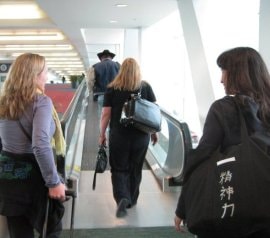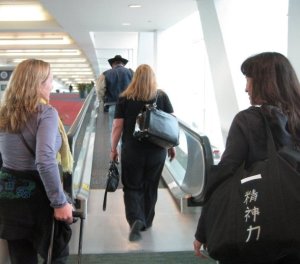
 We have all heard the warning to be careful of what we wish for. It frequently accompanies a sentiment regarding trees and a forest. Well, there have been far too many times in my life where what I had thought would be best was later proven to be wrong for me to trust my wish-making abilities. Fortunately, most of those lessons were delivered safely by not getting what I asked for, rather than getting stuck with what I did.
We have all heard the warning to be careful of what we wish for. It frequently accompanies a sentiment regarding trees and a forest. Well, there have been far too many times in my life where what I had thought would be best was later proven to be wrong for me to trust my wish-making abilities. Fortunately, most of those lessons were delivered safely by not getting what I asked for, rather than getting stuck with what I did.
On the other hand, wishes are the precursor to goals, and goals are useful. While wishes tend to depend upon luck or divine favor, goals require our intention and actions to bring them to fruition. They focus our attention, inspire our choices and give us a destination toward which we can steer. They keep us striving and learning. They are the carrot encouraging the chase, and the light that guides our way through the haze of doubt.
Sometimes, achieving our goal brings a new set of complications. We can find ourselves in a state of loss, thinking—What now? We can suffer the realization that we don’t want what we worked so hard to gain, or that what we gained was not what we thought it would be. Other times, the result is exactly what we hoped it would be but it comes with the weight of new responsibility.
Each of these conditions, while seeming to be negative, can be very positive. Doubt, confusion, dissatisfaction, and even fear can inspire us to grow, hone our direction, and establish new goals. And many times, the very thing we need to help us mature into a new empowered state, is additional responsibility.
While foreseeing some of these complications may cause us to adjust our direction, none of them are valid reasons to intentionally delay our arrival. However, sometimes our sense of arrival can trap us in a false and needless expectation of perfection. In this case, it might be very useful to delay—or more accurately, to change the way in which we perceive—our arrival.
People mistake mastery with perfection, enlightenment with attainment, happiness with stagnation—as though they were and end to themselves instead of a state of being. These misconceptions can cause us to place unreasonable expectations on ourselves.
When perpetuating our ideal of achievement becomes more important than experiencing the state of being, we lose our authenticity. We become too fearful of error to explore our mastery. Too protective of our attainment of enlightenment to experience the mindful awareness of our own human condition. Too busy maintaining the appearance of happiness to appreciate the broadness of its scope. Ironically, when we were striving, we had no such limitations. The attachment and expectation associated with our sense of arrival is what lessens our ability.
But it doesn’t have to be this way. Mastery is a state of being that still includes imperfection and growth, The Dalai Lama is mindfully aware of his anger, and even the happiest people feel sorrow. When we change our perception of achievement, the arrival feels less like a destination and more like an ongoing path.






